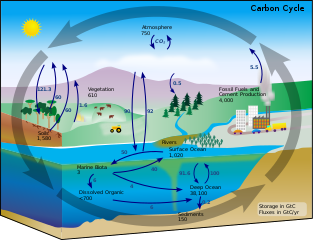Industry News
It's Baaack: Some in Congress Discussing 2023 Carbon Border Tax
TweetSept. 19, 2022
By:
David G. Forgue
We have written about the coming centrality of carbon in international trade, as well as practical steps toward implementing some sort of carbon adjustment in international trade. However, an article in the September 13, 2022 International Trade Today about Senator Bill Cassidy’s (R-LA) desire to implement a carbon border adjustment tax raised the stakes in the carbon discussion.
To this point carbon border adjustment taxes have been seen mostly as an environmental measure that would raise prices for manufacturers in the United States. This was true even as supporters explained that well-crafted carbon measures could actually support domestic manufacturing. This made any carbon adjustment or border tax a partisan issue in a long line of other hopelessly partisan issues.
 The argument now being used by at least some Republicans in Congress is that the way to preserve United States jobs in fields like steel, aluminum, cement, and chemicals is to reward American manufacturers of those items that are carbon efficient. One reason that some countries have a cost advantage in these industries is that they face minimal restrictions on pollution emission. However, there is no mechanism in international trade at the moment to level the carbon emission playing field. A carbon border adjustment tax would do that by making carbon inefficiency a competitive disadvantage. This means that environmentalists, China hawks, and Senators from fossil fuel-dependent states can all find something to like in a carbon border adjustment tax.
The argument now being used by at least some Republicans in Congress is that the way to preserve United States jobs in fields like steel, aluminum, cement, and chemicals is to reward American manufacturers of those items that are carbon efficient. One reason that some countries have a cost advantage in these industries is that they face minimal restrictions on pollution emission. However, there is no mechanism in international trade at the moment to level the carbon emission playing field. A carbon border adjustment tax would do that by making carbon inefficiency a competitive disadvantage. This means that environmentalists, China hawks, and Senators from fossil fuel-dependent states can all find something to like in a carbon border adjustment tax.
As regular readers will realize, there is nothing new about this argument. Carbon border adjustment taxes were always intended to create an economic incentive to manufacture in a less carbon-intensive way. What is new is having a senator from a state that relies very heavily on oil, natural gas, and chemical production identify a carbon border adjustment tax as a means to help those industries in his state. From such self-interest is bipartisanship created.
If you have any questions about imports, exports, or carbon border adjustments do not hesitate to contact any attorney at Barnes, Richardson & Colburn, LLP.
